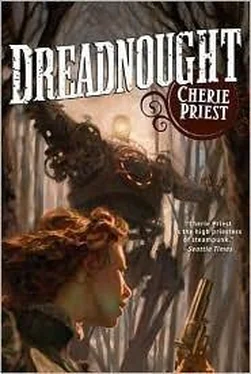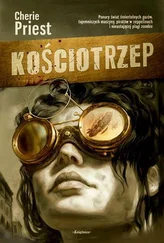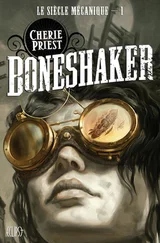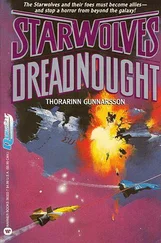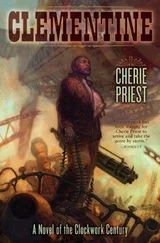Cherie Priest - Dreadnought
Здесь есть возможность читать онлайн «Cherie Priest - Dreadnought» весь текст электронной книги совершенно бесплатно (целиком полную версию без сокращений). В некоторых случаях можно слушать аудио, скачать через торрент в формате fb2 и присутствует краткое содержание. Год выпуска: 2010, ISBN: 2010, Жанр: Фантастика и фэнтези, на английском языке. Описание произведения, (предисловие) а так же отзывы посетителей доступны на портале библиотеки ЛибКат.
- Название:Dreadnought
- Автор:
- Жанр:
- Год:2010
- ISBN:978-0-7653-2578-5
- Рейтинг книги:3 / 5. Голосов: 1
-
Избранное:Добавить в избранное
- Отзывы:
-
Ваша оценка:
- 60
- 1
- 2
- 3
- 4
- 5
Dreadnought: краткое содержание, описание и аннотация
Предлагаем к чтению аннотацию, описание, краткое содержание или предисловие (зависит от того, что написал сам автор книги «Dreadnought»). Если вы не нашли необходимую информацию о книге — напишите в комментариях, мы постараемся отыскать её.
Dreadnought — читать онлайн бесплатно полную книгу (весь текст) целиком
Ниже представлен текст книги, разбитый по страницам. Система сохранения места последней прочитанной страницы, позволяет с удобством читать онлайн бесплатно книгу «Dreadnought», без необходимости каждый раз заново искать на чём Вы остановились. Поставьте закладку, и сможете в любой момент перейти на страницу, на которой закончили чтение.
Интервал:
Закладка:
But she had only two hands, and only so much ammunition. The satchel she wore was slung across her back, freeing up her arms and elbows so she could aim and shoot, sometimes hitting and sometimes missing. One head. Two heads. A puff of snow like dust, right in the place where a corpse had only just been running. She missed another one, and couldn’t recall how many shots she’d fired.
Below her, the five men were dividing their time between self-defense and the task at hand, and the task at hand was losing ground. Above her, Inspector Galeano was still shouting, still shooting; and beside her, Lieutenant Hobbes was reloading.
Mercy’s right gun ran out of bullets. She whipped her satchel front and center, dug around hastily, and filled both wheels of both guns with quivering fingers gone numb from cold and recoil and fear.
Lieutenant Hobbes said, “Mrs. Lynch!”
And she said back, “I’m reloading!”
“Hurry!” And he fired again, and again.
She clapped the wheel of her left handgun into place, fully stocked once more. Mercy dared a glance up ahead at the Shenandoah . Her heart constricted as she saw the Confederate men holding their position with prybars and long-barreled guns that were long empty. They used them like bats, swinging and swatting the attackers away as long as their arms could stand it.
“Mrs. Lynch!” It was the conductor this time. She’d never caught his name, and didn’t know where he’d picked up hers, except from standing around and listening to people shout it.
She responded by aiming and firing again, as the wave kept coming and the men below kept working.
A dead woman was running in fast, her full skirts in bright colors and patterns layered up together. Her arms were bare, despite the frigid temperatures, and her hair was as wild as a squirrel’s nest. This dead woman’s face was contorted, her lips drawn back and her jaw thrust forward; she was reaching with her teeth.
Mercy aimed carefully. She waited until the woman’s eyes looked wet and near, and her scream could be discerned as an individual cry above the echoing cacophony of the bizarre battle.
And she fired. She pulled the trigger once, and watched the top of the dead woman’s head shatter. Her legs kept moving, only for a few steps more; then she stumbled to her knees, and then forward into the snow. But at least the corpse hadn’t reached the porter, who was beginning to climb up the side of the snowplow; and it hadn’t reached the rail-yard man, who was hot on the porter’s trail.
The rest of them, though. They were still coming.
Inspector Galeano screamed, “ Ay, Dios mío! Keep it clear!” He fired the last three bullets in his barrel and seized at his own ammunition bags, hunting for more. “They are coming! They are still coming!”
The conductor hollered something down at the men on the snowplow, but Mercy didn’t catch it. She was focused on following directions, on keeping the spot in front of the train clear of the climbing, clamoring bodies with their clamping teeth and corpses’ eyes.
Right under her arms, the first porter rose up so that she was shooting past him, over his head. She was surely giving his ears a terrible thrashing, but he didn’t complain. He said at the top of his lungs, “Clear! Fire and start!”
This startled Mercy into looking over at the lieutenant. She saw two of the other rail men coming up over the edge beside him; and then she understood that the men on the ground in front of the train were finished, and the snowplow was readied, and they could leave, if only they could barrel through the barriers before them. She holstered her guns and they sizzled hot against the leather, smoldering warm patches against her hip.
“Here,” she said to the porter, who struggled to lift himself over the edge. She took him by the shoulder, under the arm. “Here, come on. Get up here.”
He fell down past her, into the Dreadnought ’s interior, and she reached for the rail man.
The rail man gazed up at her in terror. He kicked hard, knocking away a corpse’s teeth as they nipped and chomped at his boots. He was struggling, his striped shirt ripped and the jacket he wore over it hanging from one arm.
Mercy braced her feet around a pipe that was down by her knees, reached over the edge, and seized his forearms even as he grasped at her wrists. He was heavy, but she was strong. She’d lifted a pony once or twice, and plenty of men at the Robertson Hospital, when it’d come to that. She could lift him, too.
She heaved him backwards, and up, and with an awkward sideways slide over the rim, he toppled down into the interior, gasping for breath like a freshly caught fish in the bottom of a boat.
The conductor was moving, a man with a mission and maybe-God willing-a plan. “Help me!” he said to the lieutenant, who was still firing potshots as the uniformed dead began to climb, using their fallen brethren as ladders and stepstools on their way ever higher, trying desperately to make it up to the living folks inside the iron giant.
Lieutenant Hobbes holstered everything, leaped off the bin, and joined the conductor beside a pair of metal levers that were as long as a tall man’s thigh.
“On the count of three-pull that one!” the conductor said as he pointed.
“Count of three,” the lieutenant repeated.
“One, two, three-” And the levers both came down, not easily, but with the strain of both men’s backs cranking and pulling with all their weight.
A snapping latch cracked almost as loud as the guns, and the balance of the engine shifted; Mercy felt it as a slight leaning forward, where before the engine had seemed to point up just a touch.
“It’s on!” said the rail man. His observation was picked up and echoed around the narrow space. “It’s on! It’s on!”
The conductor’s mouth was a line as hard as a riveted seam. He said, “Let’s go.” He drew down on the whistle, and the edge of his gray mustache twitched with determination, or rage, or desperation, or something else Mercy couldn’t quite read.
As he pulled the whistle, he used his other arm to flip another switch, and pull a knob. He ordered the rail men and the porters to take up shovels, check the hydrogen lines, and make sure the stuff was being made and sent up from the fuel car.
There was no room to maneuver, or even to get out of the way-not with the lieutenant and his two soldiers, the five rail men and porters, the conductor, and Inspector Galeano still firing from his bird’s-eye perch.
Mercy gripped the edge of the nearest bin, and the Dreadnought lunged. It didn’t move forward; not quite, not yet, but it gave a shove and a lean, like a man bracing himself to break down a door, and its next lean and shove drew the whole train forward with a rattle as the cars clacked together, flexing on the track, knocking against one another from the sudden pull.
“The plow!” hollered the conductor. “Start it up!”
The nearest porter reached for a lever built into the floor; it had a squeezable handle, and when this handle was drawn back down and the lever was jammed into the necessary position, a new hum joined the fray.
The hum started slow, and low; it began distant, and thundering, and rough. A cloud clearing its throat, or a mountain shrugging off a small avalanche. A windmill caught in a gale, shuddering and flapping. The conductor called for it, saying, “More hydrogen! Divert it from the secondary boiler! Just power the plow first-we won’t move without it!” With more fuel, the hum came louder, and steadier. It went from the crooked fan blade, unbalanced and wobbling, to a smooth and vocal growl that rose up so loud that it almost (not quite, but almost) dampened the sound of Theodora Clay and the men in the passenger car firing; the Mexican inspector, still upright, still shooting, and now openly crying; and the undead hordes oncoming.
Читать дальшеИнтервал:
Закладка:
Похожие книги на «Dreadnought»
Представляем Вашему вниманию похожие книги на «Dreadnought» списком для выбора. Мы отобрали схожую по названию и смыслу литературу в надежде предоставить читателям больше вариантов отыскать новые, интересные, ещё непрочитанные произведения.
Обсуждение, отзывы о книге «Dreadnought» и просто собственные мнения читателей. Оставьте ваши комментарии, напишите, что Вы думаете о произведении, его смысле или главных героях. Укажите что конкретно понравилось, а что нет, и почему Вы так считаете.
